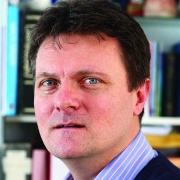Analysis: GPs face stark drop in take-home pay after ‘kick in the teeth’ on funding

‘We are looking at possible redundancies and curtailing our services to survive next year,’ says Dr Ivan Camphor, medical secretary of Mid Mersey LMC. And his practice is far from alone.
GPs are facing another year of financial pain, with a paltry uplift in GMS funding of just 0.28% from this month unlikely to do much to cover rising expenses.
Many partners have already had to cut their drawings last year. Indeed, Pulse has learned of some who are in such financial difficulty that they have been unable to pay themselves at all for several months.
Medical accountants are predicting the latest pay award will pile on the pressure, with partners expected to see a drop in take-home pay and some even predicted to cut drawings by as much as 7.5%.
‘Flawed’ formula
At the centre of the row over the pay award – described in no uncertain terms by the GPC as a ‘kick in the teeth’ – is the question of staff costs.
The recommendation of the Review Body on Doctors’ and Dentists’ Remuneration (DDRB), enthusiastically accepted by health secretary Jeremy Hunt, was that a 0.28% uplift would result in a 1% boost in GPs’ take-home pay, and that this was because staff expenses over the past year had fallen by some 1.4%.
But medical accountants are sceptical, claiming staff expenses have actually risen by around 2% to 3%. They say a funding uplift of around 1.9% would have been required to deliver the 1% rise in GPs’ pay recommended by the review body.
GPC chair Dr Chaand Nagpaul says: ‘[This is] a kick in the teeth for GPs at a time when there is overwhelming evidence that GP workload is escalating to an unsustainable level, while resources are continuing to fall in real terms.
‘It beggars belief to suggest that a 0.28% uplift in the GP contract will translate into a 1% increase in GP pay at a time when expenses are projected to continue to accelerate. This decision fails to recognise the expanding role and workload in general practice that shows no signs of abating.’
The GPC’s view is supported, in part, by the DDRB itself, whose report admitted the formula it has used for the past few years to calculate the uplift required to deliver a net pay increase was ‘flawed’ and might not fully take account of staffing costs, expenses and reimbursements, hours worked, or variations in the correction factor or the QOF.
Luke Bennett, a partner at accountants Francis Clark LLP, describes the staff expenses figure in the DDRB report as a ‘mystery’, and estimates that staff costs have in fact gone up by around 2.5%. He says GPs will have to make ‘drastic decisions’ to cut staff hours or posts.
‘It doesn’t make sense with anything we see on the ground, where staff costs have continued to go up,’ Mr Bennett says. ‘GPs should have got a pay uplift of 1.89%. If we assume average GP earnings are £100,000, then this is a pay cut of £610, instead of a pay rise of £1,000.’
Rosemary Smith, senior partner at RS Medical Accountancy, says in the ‘worst case’ GPs could see take-home pay drop by as much as 7.5%.
She adds: ‘I have not found to date that GPs are reducing their staff costs. They might well need to do so next year to reduce the impact on their income.’
Threat to retention
Bob Senior, chair of the Association of Independent Specialist Medical Accountants and head of medical services at Baker Tilly, also estimates that staff costs have increased between 2% and 3% at the average practice.
He says: ‘Increasingly we are seeing practices having to cover more staff hours because of increasing patient demand, which leads to more hours being paid for, so overall staff bills are going up.
‘The current trend of people leaving the profession is going to continue – no two ways about that.’
The pay award comes as LMC leaders warned they had heard of several cases of GP partners not being able to take out drawings for months because of payment problems and swings in practice income.
Dr John Hughes, the GPC member for Manchester, Salford, Trafford and Stockport, says there is a ‘potentially very serious situation’ developing, where practices could become financially unviable.
‘We’re getting a lot of information about practices where partners haven’t made any drawings for two to three months,’ he says. ‘Somehow they’ve had to put money into the practice to be able to pay the practice staff.’
He adds: ‘It is for multiple reasons – delayed payments due to chaos from outsourced and multisource payments previously done by the PCT finance department, changes in timing of payments, changes in QOF predicted payments, loss of LESs and many other factors.
‘And all this is before MPIG or PMS changes come in, with many practices struggling with income and having little prospect of improvement in the near future.’
Services in jeopardy
Meanwhile, the BMA has warned that margins are increasingly being squeezed in GP practices, with the proportion of funding that goes towards paying expenses rising from 59% to 62% since 2008/9.
The Department of Health spokesperson says: ‘We are committed to investing in primary care and, as part of our ambitious changes to the GP contract, there will be a reduction of more than a third of the QOF, allowing money GPs currently earn from these targets to be pumped into overall primary care budgets and a new enhanced service.’
But Dr Camphor says that with GP practices being small businesses, the buck stops with partners.
‘I’m taking a hit. We’re all paying out of our own pockets for some of the services and to provide pay rises, while our drawings have gone down every year and now will reduce further,’ he says.
‘Next year is going to be very hard, financially but also with service provision. We won’t be able to do the things we wanted to do, as we don’t have flexibility, sources or the luxury of having the same personnel.
‘That is what is really sad ultimately, as our practice as a team provides an excellent service.’
Dr Stephen Taylor

‘Drawings are down for the fourth year in a row’
All the partners will take a hit again, as we’ve done the past three years in terms of a drawings reduction. I think it’s been four years in a row now that we’ve had a reduction.
Staff costs have gone up to cover extra workload. We try to keep the staff pay going up at 2%, even when we aren’t getting a pay rise, just to keep staff morale at a level where they want to carry on working with us.
Expenses overall have gone up by about 3% or 4%. We try our best to economise, but everything is increasing. We try to maximise income in other places, such as using medical students, and we try to reduce costs.
Pragmatically, we are paid pretty well, so our practice can survive. But morale is the issue. Increased workload with reduced pay doesn’t make for a happy workforce.
Dr Stephen Taylor is a GP in Prestwich, Manchester
Five quick tips to survive the funding squeeze
Accountant Sue Beaton offers a quick-fire checklist to help practices survive the disappointing pay review










